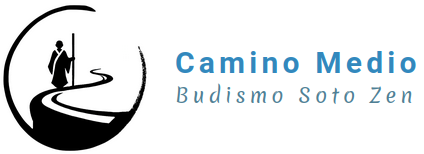Ethical conduct, known as sila in Buddhism, It is one of the fundamental aspects on the path to liberation from suffering and enlightenment. This behavior is based on the understanding that our actions have consequences, not only for us, but also for others. Therefore, Ethical behavior is essential to cultivate a calm mind and harmonious life. in Buddhism, sila It is made up of three key elements: Correct Speak, Right Action and Right Livelihood. Next, we develop each of these aspects.
Correct Speak
The concept of Correct Speech (samyak-German) involves using the word in a way that is truthful, kind and beneficial. The Buddha taught that the word has great power: can be a tool for peace and truth, but it can also cause harm and suffering.
Practicing Correct Speech is not just about what we say, but also how we say it and why we say it. It is a conscious effort to use language in a way that contributes to the peace and well-being of all beings..
In simple terms, Correct Speech involves using the word in a way that benefits all beings and avoids causing harm. This means not only refraining from lying, but also be aware of the impact our words can have on others.
Components of Correct Speech
Correct Speech can be broken down into four key aspects, each of which addresses a specific type of harmful speech that we should avoid:
- Avoid lying: Truth is a central value in Buddhism. Lying distorts reality and can generate confusion and distrust.. Therefore, the first rule of Correct Speech, that is to say, always the truth, or at least, deliberately avoid deceiving others.
- Do not speak maliciously: Speaking with the intention of creating conflict or division between people is contrary to the principles of Right Speech.. Gossip and gossip that seek to separate people, generating enmity or fomenting hatred should be avoided. Instead, we must strive to speak in a way that promotes peace and harmony.
- Do not use hurtful words: Aggressive or insulting language can not only harm the person at whom it is directed, but it also reflects a negative mental state in the person who uses it. Correct Speech invites us to use language that is kind, respectful and compassionate, avoiding any expression that may cause pain or suffering.
- Avoid frivolous talk: Talking without a clear purpose, just to fill the silence, can distract both oneself and others from what is really important. Right Speech involves speaking so that our words have a positive and constructive purpose., and not simply to entertain us or to fill the void.
The Practice of Correct Speech
Ethical conduct, known as sila in Buddhism, It is one of the fundamental aspects on the path to liberation from suffering and enlightenment. This behavior is based on the understanding that our actions have consequences, not only for us, but also for others. Therefore, Ethical behavior is essential to cultivate a calm mind and harmonious life. in Buddhism, sila It is made up of three key elements: Correct Speak, Right Action and Right Livelihood. Next, We develop each . . .
| The full content of this section is only available to members, Registration is free, accede with your username or high dates. |
Correct Livelihood
The Right Livelihood (samyak-ājīva) refers to earning a living in a way that does not cause harm to other living beings and is consistent with the principles of compassion and responsibility. Instead of following dogmatic rules, It is about applying ethical awareness in our work and professional decisions., ensuring our work is aligned with personal integrity and respect for others. According to the teachings of the Buddha, Some examples of livelihoods that should be avoided include:
- arms trade: Participating in the manufacture or sale of weapons encourages violence and conflict, contravening the principles of non-violence.
- Trade in living beings: This includes human trafficking, labor exploitation, and animal trafficking. All of this is contrary to the respect for life that Buddhism promotes..
- Intoxicant trade: sell alcohol, drugs or other substances that cloud the mind and cause addiction is harmful to both users and society in general.
- Poison trade: This includes the production and sale of toxic substances that can cause harm to people., animals or the environment.
The Right Livelihood is not limited only to the type of work we do, but also how we carry it out. We must ensure that our daily occupation is aligned with the principles of compassion, honesty and respect for life.
The Right Livelihood is a guide to choosing a way of life that reflects our ethical values and that contributes to the well-being of both ourselves and others..
Instead of focusing on strict prohibitions, For Buddhism, the correct livelihood is part of the practice of mindfulness applied to working life.. This involves critically reflecting on the impact of our economic and work activities on the world.. The central question is not “What is prohibited?”, sino “How do my actions contribute to a more just and compassionate world??”
Practice of Right Livelihood
- Ethical reflection on occupation: Before choosing or continuing in a profession, It is useful to reflect on how this work affects other beings and the environment. Does your work promote exploitation or well-being? Does it contribute to the suffering or happiness of others? This reflection can guide you towards decisions that are in line with an ethical life..
- Coherence between values and actions: The Right Livelihood is about aligning what we do for a living with our deepest values.. If you value nonviolence, For example, It is important that your work does not involve the production or sale of weapons, or that does not contribute to the exploitation of people or animals.
- Positive contribution to the world: In addition to avoiding damage, the Right Livelihood invites us to look for ways that our work actively contributes to the well-being of society. This may mean working in professions that promote education, health, human rights or environmental sustainability.
Examples of Correct Livelihood
Buddhism does not dictate a specific list of right or wrong occupations, but invites each individual to evaluate their personal situation honestly. However, Some professions that could align with Right Livelihood include:
- Jobs in education, where the intellectual and ethical development of people is encouraged.
- Activities in the health field, seeking to alleviate physical and mental suffering.
- Professions in non-governmental organizations or in the social field, that promote justice, human rights or environmental protection.
On the other hand, Jobs that may be in conflict with Right Livelihood are those that involve exploitation, deception or violence, like arms trafficking, labor exploitation or trade in harmful substances.
In the modern world, It is not always easy to find an occupation that is completely free of ethical dilemmas. For example, you could work in an industry that, although it is not inherently harmful, has certain aspects that could be considered problematic. Buddhism points out that, instead of seeking ethical perfection, let's focus on minimizing damage and making adjustments where possible. This could mean making difficult decisions, such as changing jobs or changing the way you do your job to make it more ethical.
From the perspective of Buddhism, Right Livelihood is an applied ethics practice that requires continuous reflection on our career choices and their impact on the world.. It's about finding a balance between our economic needs and our desire to live according to our values.. By integrating this reflection into our lives, we can transform our daily occupation into an expression of our ethical commitments, thus contributing to a more just and compassionate world, both for ourselves and for all beings.
In summary, sila or ethical conduct is an essential component of the Buddhist path. The Practice of Correct Speech, Right Action and Right Livelihood not only helps us avoid causing harm to others, but it also pacifies our mind. By living according to these principles, we create the conditions to develop concentration and wisdom, What are the next stages on the path to awakening?.
The cultivation of ethical conduct is not simply a set of external rules, but an expression of the deep understanding of the interconnection between all beings. Through sila, we cultivate a life of integrity and respect, which in turn allows us to progress in our spiritual development and get closer to definitive liberation from suffering..

